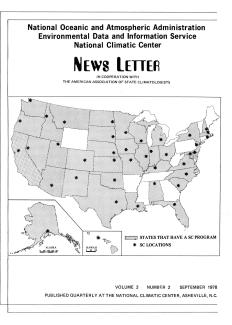About
The Rhode Island State Climate Office (SCO) serves as the primary resource for climate science in Rhode Island. The SCO is hosted by the Department of Environmental Management (DEM) and supported by staff in the Office of Air Resources. We are recognized by the National Centers for Environmental Information (NCEI) and the American Association of State Climatologists (AASC). In cooperation with NCEI’s Regional Climate Services program and the Northeast Regional Climate Center, we obtain, analyze, and present state-specific climate data to decisionmakers and stakeholders. This includes – but is not limited to – expertise on climate trends, drought, and climate change impacts.
Our Mission
- Provide pertinent climate data and information services to State agencies and the public
- Partner with the National Weather Service and the Rhode Island Water Resources Board to monitor drought
- Advance the state's knowledge of climate change in alignment with the Act on Climate
Our History
1978-2000
The National Climate Program Act, signed into law by President Carter in September 1978, was a major effort by the U.S. government to establish a climate services program. Around the same time, the SCO was started at the University of Rhode Island (URI) by Dr. James Havens. Dr. Havens was a professor in the Department of Geography & Marine Affairs and served as Rhode Island’s first state climatologist. The first iteration of the SCO was short-lived; by November 1980 the SCO was inactive. It is presumed Dr. Havens retired from academia. In 1983, the SCO was re-started by Dr. Robert Wakefield in URI’s Department of Plant Sciences. In addition to his academic duties, Dr. Wakefield conducted agronomy experiments at the Rhode Island Agricultural Experiment Station. He also oversaw the university’s weather station, Rhode Island’s longest running climate site (records back to 1893). Dr. Wakefield was a member of the Northeast Regional Technical Committee that studied the impact of climate on agriculture and was president of the Rhode Island Association of Conservation Districts. Dr. Wakefield served as state climatologist until his retirement from URI in 1989. Carl Sawyer, a research associate in URI’s Department of Plant Sciences, assumed the role of state climatologist on an interim basis until 2000.

2014-Present
The Resilient Rhode Island Act was signed by Governor Chaffee in 2014, which required the state to adaptively plan for and manage the impact of climate change. The SCO transitioned from URI to DEM to support the implementation of this new law. The SCO’s transition from academia to state government was a pivotal moment in the history of the program. The mission of the SCO shifted from primarily climate-agricultural research to operational climate services. Lenny Giuliano, now retired from DEM’s Office of Emergency Response, served as state climatologist for over 10 years.
The successor to the Resilient Rhode Island Act, the Act on Climate, was signed by Governor McKee in 2021 and requires the Rhode Island Executive Climate Change Coordinating Council (EC4) to “Advance the state’s understanding of the effects on climate change…” To aid the EC4 in this directive, the SCO was transitioned to DEM’s Office of Air Resources, where Joseph Poccia has served as state climatologist since 2025.
